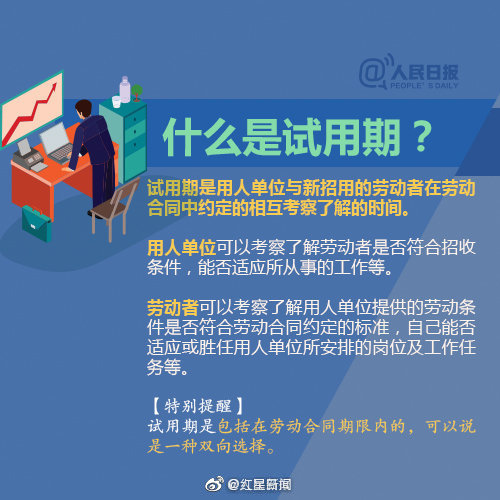One Big Beautiful Bill Act to ban states from regulating AI
Buried in the Republican budget bill is 关键字1a proposal that will radically change how artificial intelligence develops in the U.S., according to both its supporters and critics. The provision would ban states from regulating AI for the next decade.
Opponents say the moratorium is so broadly written that states wouldn't be able to enact protections for consumers affected by harmful applications of AI, like discriminatory employment tools, deepfakes, and addictive chatbots.
Instead, consumers would have to wait for Congress to pass its own federal legislation to address those concerns. Currently it has no draft of such a bill. If Congress fails to act, consumers will have little recourse until the end of the decade-long ban, unless they decide to sue companies responsible for alleged harms.
You May Also Like
SEE ALSO: AI has entered the therapy session — and it's recording you
Proponents of the proposal, which include the Chamber of Commerce, say that it will ensure America's global dominance in AI by freeing small and large companies from what they describe as a burdensome patchwork of state-by-state regulations.
But many say the provision's scope, scale, and timeline is without precedent — and a big gift to tech companies, including ones that donated to President Donald Trump.
This week, a coalition of 77 advocacy organizations, including Common Sense Media, Fairplay, and the Center For Humane Technology, called on congressional leadership to jettison the provision from the GOP-led budget.
"By wiping out all existing and future state AI laws without putting new federal protections in place, AI companies would get exactly what they want: no rules, no accountability, and total control," the coalition wrote in an open letter.
Some states already have AI-related laws on the books. In Tennessee, for example, a state law known as the ELVIS Act was written to prevent the impersonation of a musician's voice using AI. Republican Sen. Marsha Blackburn, who represents Tennessee in Congress, recently hailed the act's protections and said a moratorium on regulation can't come before a federal bill.
Other states have drafted legislation to address specific emerging concerns, particularly related to youth safety. California has two bills that would place guardrails on AI companion platforms, which advocates say are currently not safe for teens.
One of the bills specifically outlaws high-risk uses of AI, including "anthropomorphic chatbots that offer companionship" to children and will likely lead to emotional attachment or manipulation.
SEE ALSO: Explicit deepfakes are now a federal crime. Enforcing that may be a major problem.Camille Carlton, policy director at the Center for Humane Technology, says that while remaining competitive amidst greater regulation may be a valid concern for smaller AI companies, states are not proposing or passing expansive restrictions that would fundamentally hinder them. Nor are they targeting companies' ability to innovate in areas that would make America truly world-leading, like in health care, security, and the sciences. Instead, they are focused on key areas of safety, like fraud and privacy. They're also tailoring bills to cover larger companies or offering tiered responsibilities appropriate to a company's size.
Historically, tech companies have lobbied against certain state regulations, arguing that federal legislation would be preferable, Carlton says. But then they lobby Congress to water down or kill their own regulatory bills too, she notes.
Related Stories
- Reddit-trained artificial intelligence warns researchers about... itself
- News/Media Alliance says Google’s AI takes content 'by force'
- Why experts say AI companions aren't safe for teens — yet
- Leak reveals what Sam Altman and Jony Ive are cooking up: 100 million AI 'companion' devices
Arguably, that's why Congress hasn't passed any major encompassing consumer protections related to digital technology in the decades since the internet became ascendant, Carlton says. She adds that consumers may see the same pattern play out with AI, too.
Some experts are particularly worried that a hands-off approach to regulating AI will only repeat what happened when social media companies first operated without much interference. They say that came at the cost of youth mental health.
Gaia Bernstein, a tech policy expert and professor at the Seton Hall University School of Law, says that states have increasingly been at the forefront of regulating social media and tech companies, particularly with regard to data privacy and youth safety. Now they're doing the same for AI.
Bernstein says that in order to protect kids from excessive screen time and other online harms, states also need to regulate AI, because of how frequently the technology is used in algorithms. Presumably, the moratorium would prohibit states from doing so.
"Most protections are coming from the states. Congress has largely been unable to do anything," Bernstein says. "If you're saying that states cannot do anything, then it's very alarming, because where are any protections going to come from?"
(责任编辑:时光它会替我们记得)
- ·กัมพูชายอมเปิดด่านบ้านแหลมเคลียร์ผู้คน 2 ปท.ที่ตกค้าง หลังปิดด่านกะทันหัน
- ·冰汽时代最后的家园职业介绍及选择推荐
- ·中马协场地障碍项目二级技术官员培训考核(天津站)结束
- ·第一个没有父亲的父亲节说说 父亲节的伤感说说
- ·《骑马与砍杀2》大型MOD织丰上线 日本战国主题
- ·初涉股海 选股票好比选美女
- ·高三主题班会教案大全(精选11篇)
- ·Watch Call of Duty®: NEXT and Earn Rewards in Modern Warfare® III
- ·三大股指早盘震荡走低 沪指失守2600点
- ·中马协将召开2022中国马术场地障碍挑战赛推介会
- ·微软或将全面退出主机市场?机器可能全靠第三方厂商
- ·Watch Call of Duty®: NEXT and Earn Rewards in Modern Warfare® III
- ·MotoGP 2025 livestream: How to watch MotoGP World Championship for free
- ·化学老师总结500字(2篇素材参考)
- ·《剑星》拍照模式宣传视频 当摄影师给伊芙拍美照
- ·广州男篮力克山西迎队史季后赛首胜,扳回一城留住悬念
- ·垃圾分类你教会小朋友了吗?
- ·亳州启动网络文明盛典暨“国际志愿者日”系列活动
- ·韩今任怡嘉夺冠 如歌中国青少年邀请赛6位冠军出炉
- ·Wordle today: The answer and hints for June 8, 2025














